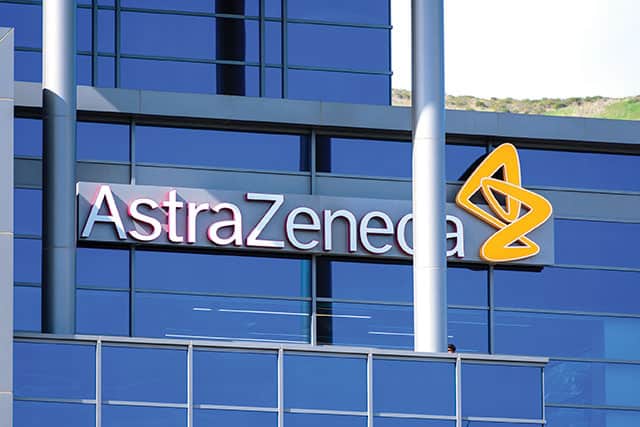
AstraZenea’s Bruton’s tyrosine kinase (BTK) inhibitor Calquence has failed to improve survival and prevent respiratory failure in hospitalised COVID-19 patients.
The CALAVI phase 2 trials had been evaluating the efficacy and safety of Calquence (acalabrutinib) alongside best supportive care (BCS) in patients hospitalised with respiratory complications of COVID-19.
The primary endpoint, measuring respiratory failure or death, was not met, with the addition of Calquence to BCS failing to increase the number of patients who remained alive and free of respiratory failure compared to placebo.
In a statement, AZ said that the results from the CALAVI trial do not impact the approved indications or pending approvals for Calquence.
“The CALAVI trials were launched based on preclinical and early clinical evidence that Calquence could decrease the hyperinflammatory immune response and improve clinical outcomes in patients hospitalised with respiratory symptoms of COVID-19,” said José Baselga, executive vice president, oncology R&D, AZ.
“While the CALAVI results are disappointing, we remain committed to advancing science that helps patients during this unprecedented global pandemic, including clinical trials for the AstraZeneca Oxford coronavirus vaccine and our long-acting antibody combination,” he added.
Calquence is approved to treat a number of blood cancers and is indicated for use in adults with previously treated mantle cell lymphoma (MCL) as well as adults with chronic lymphocytic leukaemia (CLL) or small lymphocytic lymphoma (SLL).
AZ had been hoping that the therapy’s ability to target autoimmune diseases could translate to a benefit in certain COVID-19 patients.
In severe COVID-19, patients experience a hyperinflammatory response known as cytokine storm, which causes the body’s reaction to the infection to go into overdrive. This hyper inflammation can seriously harm patients with COVID-19 and can result in the death of patients.
Aside from Calquence, AZ is also testing a late-stage COVID-19 vaccine candidate, originally developed by Oxford University researchers, which is expected to yield data by the end of the year.
In a phase 1/2 study, the vaccine candidate – AZD1222 – produced a robust immune response against the SARS-CoV-2 virus, which causes COVID-19, in all vaccinated participants.
The British drugmaker is also evaluating a long-acting antibody combination, AZD7442, in two phase 3 clinical trials including over 6,000 participants.
One trial is set to evaluate the safety and efficacy of AZD7442 to prevent COVID-19 infection for up to 12 months, while the second trial will evaluate the drug for post-exposure prophylaxis and pre-emptive treatment.




